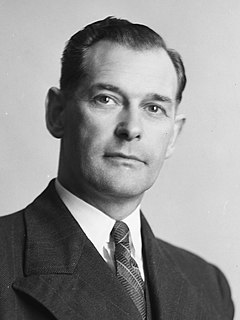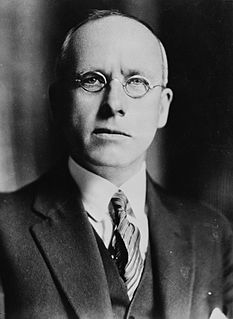
The 1969 New Zealand general election was a nationwide vote to determine the shape of Parliament's 36th term. It saw the Second National Government headed by Prime Minister Keith Holyoake of the National Party win a fourth consecutive term.

The 1946 New Zealand general election was a nationwide vote to determine the shape of the New Zealand Parliament's 28th term. It saw the governing Labour Party re-elected, but by a substantially narrower margin than in the three previous elections. The National Party continued its gradual rise.

The 1949 New Zealand general election was a nationwide vote to determine the shape of the New Zealand Parliament's 29th term. It saw the governing Labour Party defeated by the opposition National Party. This marked the end of the First Labour government and the beginning of the First National government.

The 1951 New Zealand general election was a nationwide vote to determine the shape of the New Zealand Parliament's 30th term. The First National Government was re-elected, with the National Party increasing its parliamentary majority over the opposition Labour Party.

The 1954 New Zealand general election was a nationwide vote to determine the shape of the New Zealand Parliament's 31st term. It saw the governing National Party remain in office, but with a slightly reduced majority. It also saw the debut of the new Social Credit Party, which won more than eleven percent of the vote but failed to win a seat.

The 1957 New Zealand general election was a nationwide vote to determine the shape of the New Zealand Parliament's 32nd term. It saw the governing National Party narrowly defeated by the Labour Party. The 1957 elections marked the beginning of the second Labour government, although this administration was to last only a single term.

The 1960 New Zealand general election was a nationwide vote to determine the shape of the New Zealand Parliament's 33rd term. It saw the governing Labour Party defeated by the National Party, putting an end to the short second Labour government.

The 40th New Zealand Parliament was a term of the Parliament of New Zealand. Its composition was determined by the 1981 elections, and it sat until the 1984 elections.

Remuera is a former New Zealand parliamentary electorate, in the city of Auckland. It existed from 1938, when it replaced the Parnell electorate, until 1996. It was consistently held by members of the National Party.

The 29th New Zealand Parliament was a term of the Parliament of New Zealand. It opened in 1950, following the 1949 general election. It was dissolved in 1951 in preparation for the 1951 general election. The governing Labour Party had been defeated in the election by the National Party. This marked the end of the First Labour government and the beginning of the First National government.

The 28th New Zealand Parliament was a term of the New Zealand Parliament. It was elected at the 1946 general election in November of that year.

The 30th New Zealand Parliament was a term of the New Zealand Parliament. It was elected at the 1951 general election on 1 September of that year.

The 32nd New Zealand Parliament was a term of the New Zealand Parliament. It was elected at the 1957 general election on 30 November of that year.

The 33rd New Zealand Parliament was a term of the New Zealand Parliament. It was elected at the 1960 general election on 26 November of that year.

The 34th New Zealand Parliament was a term of the New Zealand Parliament. It was elected at the 1963 general election on 30 November of that year.

The 36th New Zealand Parliament was a term of the New Zealand Parliament. It was elected at the 1969 general election on 29 November of that year.

The 38th New Zealand Parliament was a term of the New Zealand Parliament. It was elected at the 1975 general election on 29 November of that year.

The 37th New Zealand Parliament was a term of the New Zealand Parliament. It was elected at the 1972 general election on 25 November of that year.

The Northern Maori by-election of 1963 was a by-election for the electorate of Northern Maori on 16 March 1963 during the 33rd New Zealand Parliament. The by-election resulted from the death of the previous member Tapihana Paikea on 7 January 1963.

The International Standard Book Number (ISBN) is a numeric commercial book identifier which is intended to be unique. Publishers purchase ISBNs from an affiliate of the International ISBN Agency.

OCLC Online Computer Library Center, Incorporated d/b/a OCLC is an American nonprofit cooperative organization "dedicated to the public purposes of furthering access to the world's information and reducing information costs". It was founded in 1967 as the Ohio College Library Center. OCLC and its member libraries cooperatively produce and maintain WorldCat, the largest online public access catalog (OPAC) in the world. OCLC is funded mainly by the fees that libraries have to pay for its services. OCLC also maintains the Dewey Decimal Classification system.












